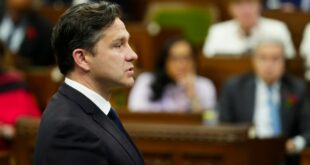Franck Ntwari's family needs to mourn together, but his father is stuck 11,500 km away

Franck Ntwari's family is still waiting to hang his picture on the wall.
His mother and brother are staying in his east Ottawa home, caring for his orphaned daughters. The family hopes the portrait will keep his memory alive.
"This is a part of healing," said Ntwari's mother, Mélanie Rubavu. "Psychologically, it means you still live with your family, your parents, your departed ones."
Tradition says they have to wait.
"[In] our culture, there is no photo until after the burial," she said in French. Ntwari is still unburied three months after his death.
"We are in a state of distress that I don't even know how to describe."
Ntwari, 41, was in a car with his friend, Innocent Muhoza, on Aug. 2 when it was struck at the corner of Montreal Road and St. Laurent Boulevard with such force that it burst into flames. Both men died.
The driver of the other car survived and was extricated from her crumpled vehicle. Shallen McKay was later charged with two counts of impaired driving causing death.
Rubavu was recovering from surgery when she heard her son was gone. "This was a great shock," she said. "I never, never rested."
She travelled from Maine, where she lives, to Ottawa. But Ntwari's father was 11,500 kilometres away in Burundi, a tiny east African country.
"I was paralyzed," Adolphe Rukenkanya said in French from his home in Burundi, remembering the moment he heard.
"I could not even cry. He and I were one."
Rukenkanya remains at his home after his visitor's visa application to Canada was refused late last month. The family invited six people from Burundi to the funeral, but only two have seen their visas accepted, while one is still waiting.
Rubavu said the delay has left "a great wound."
"I don't see burying my son without his father," Rubavu said. "It's too hard. We need family to support us."
Lawyer says human stories lost in paperwork
According to the family, it took two weeks to identify Ntwari's body due to significant burns. It took more time to gather the requisite documents before Rukenkanya submitted his application on Sept. 1.
He specified the purpose was to attend his son's funeral.
"It is extremely important, naturally, as a grandfather, that I can be close to my family, to bring comfort and support to them," he said in a video interview.
Last week, Immigration, Refugees and Citizenship Canada (IRCC) told him it refused his application for a visitor visa because he hadn't shown convincing proof he would leave Canada, taking into account his financial resources and family ties.
IRCC later told CBC Burundian nationals require visitor's visas, also known as temporary resident visas, to enter Canada for any short-term period up to six months, including for funerals.
It confirmed that is what Rukenkanya applied for.
The department said he did not demonstrate he had funds to pay for the trip. It said he has "significant family ties in Canada," though it did not specify further, citing privacy.
Rukenkanya said he has deep roots in Burundi and would never dream of settling in Canada. He was previously a minister in a Burundian government and he said his wife lives in the United States, not Canada.
He said he submitted a notarized document signed by a Canadian citizen who promised to take charge of his costs during his trip.
"I'm even wondering whether the applications are being treated by human beings or robots," Rubavu said. "This is a machine, immigration has become a machine. All the reasons they give for the refusals are based on erroneous, wrong statements."
WATCH | Mourning prolonged by the visa wait:

She can’t bury her son until her husband is able to come to Canada
6 hours ago
Featured VideoMélanie Rubavu lost her son, Franck Ntwari, in August after he died in a two-car collision in Ottawa’s east end. She has been waiting for her husband, Adolphe Rukenkanya, to arrive from Burundi so he can bury his son and arrange the family’s needs. But in October, Rukenkanya’s visitor visa was denied, and Ntwari remains unburied.
Ntwari's brother Guy wrote to the Canadian High Commission in Tanzania, where there is an immigration office, to request urgent processing of all six visas on compassionate grounds, according to a copy of the letter the family provided to CBC.
Guy said he desperately needed his family's support.
"It's scandalous what is happening, preventing a father from burying his son," Rubavu said. "Preventing a family from being supported, from coming together to bury their own. I find that inhuman."
Jamie Liew, a professor at the University of Ottawa who studies immigration law, said applications from African countries generally have a relatively lower approval rate compared to other regions.
She said there is a "humongous backlog" and immigration officials are often suspicious applicants are trying to manipulate the system with the intention of staying in Canada.
"It's unfortunate that our immigration officials aren't compassionate to the real tragedy that's behind the reasons for the application and viewing applicants with this kind of lens," she said.
Liew said officials can take into account humanitarian or compassionate situations in considering an application, but there is no obligation for them to do so.
"It's a discretionary decision … There's a distance between the individual behind the application, and sometimes the human story gets lost in the processing and the paperwork," she said.
"I would hope that IRCC trains its employees to remember that there are real people behind these applications, that there are tragic stories that call for a more nuanced and compassionate approach."
Ntwari remembered for intelligence, love of family
The family has lived through tragedy before. Ntwari's wife, Bélyse, died in 2020. Her photo hangs on the wall of his home, as a reminder to their children Christy, age five, and Milly, 10.
Rubavu describes her son as an intelligent, respectful and reserved man who loved life and his family.
She said he was taking social studies at Collège La Cité and was a "brilliant student." According to Rubavu, he was always willing to help those in his community.
"He had something that we call ubuntu in our culture," said Rubavu, describing a quality she said stands for humanity and respect for oneself and others.
She said she is fighting to preserve the ubuntu of her husband, who must fulfil his responsibilities as a father by mourning his son. He must be there in person as the family makes decisions about the future, Rubavu explained, especially about who will care for the children.
"I can't do that alone," she said. "The kids are getting stuck."
Rubavu said the two girls remain traumatized, with Christy sometimes clinging to her leg, not wanting to let go.
"The trauma from the parents' absence is there, and it will stay there, because kids stay connected to their parents," she said. "That's blood connection. We can't stop it. This is natural."
She said the girls are attached to their grandfather and one burst into tears when she learned he could not come.
IRCC has reopened father's file
In an email statement to CBC, IRCC said it's "committed to the fair and robust application of immigration procedures." It said every application is considered individually and all applicants have the opportunity to present their case by submitting relevant evidence and information.
"A decision is made only after all factors have been considered," it said. "Unless the officer is satisfied that the applicant is a genuine visitor, a visa cannot be issued."
It said people who are otherwise inadmissible can be granted a temporary resident permit on a case-by-case basis, including for "compelling humanitarian and compassionate reasons."
Rukenkanya is confident his appeal filed Monday will convince immigration officials he is coming to bury his son, support his family and return to Burundi.
IRCC said it has received two requests to reconsider the file, one from Rukenkanya and one from Ottawa-Vanier MP Mona Fortier, who has been working with the family.
The department said it has reopened his application and "security screening results are still pending."

Featured VideoThree months after Frank Ntwari was killed in a car crash, his body remains at a funeral home while his father in Burundi awaits Canadian officials to approve his visitor visa. So far, immigration officials have denied the application.
ABOUT THE AUTHOR
Reporter
Arthur White-Crummey is a reporter at CBC Ottawa. He has previously worked as a reporter in Saskatchewan covering the courts, city hall and the provincial legislature. You can reach him at arthur.white-crummey@cbc.ca.
*****
Credit belongs to : www.cbc.ca
 MaharlikaNews | Canada Leading Online Filipino Newspaper Portal The No. 1 most engaged information website for Filipino – Canadian in Canada. MaharlikaNews.com received almost a quarter a million visitors in 2020.
MaharlikaNews | Canada Leading Online Filipino Newspaper Portal The No. 1 most engaged information website for Filipino – Canadian in Canada. MaharlikaNews.com received almost a quarter a million visitors in 2020.







